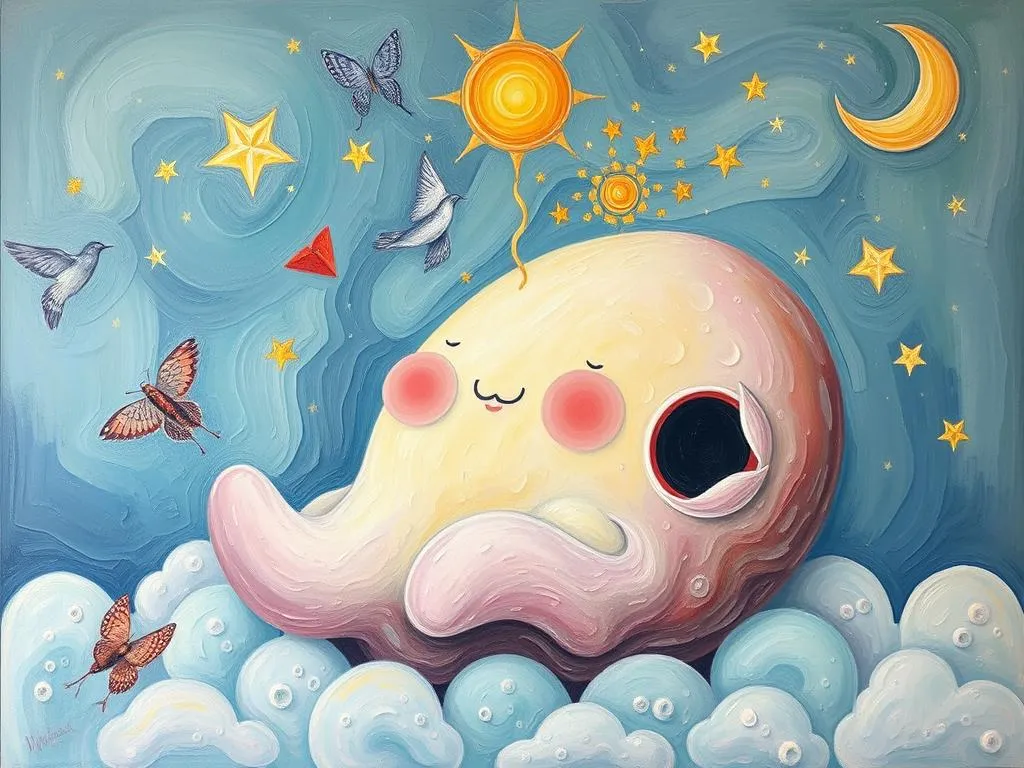
Introduction
Dreams have long fascinated humanity, serving as mysterious windows into our subconscious. They can be vivid, bizarre, or even mundane, often leaving us with a sense of wonder and curiosity about their meanings. The realm of dreams is rich with symbolism and emotional resonance, prompting us to seek understanding of our innermost thoughts and feelings. This intrigue is not merely an academic endeavor; it often reflects our personal struggles, hopes, and unresolved issues. By exploring the hidden meanings within our dreams, we can gain profound insights into our waking lives and embark on a journey of self-discovery.
Symbolism and Meaning
Dreams are filled with symbols that can vary widely in meaning based on personal experiences, cultural backgrounds, and emotional states. Here are some common symbols that might appear in dreams, along with their interpretations:
- Water: Often associated with emotions and the subconscious mind, water can represent:
- Calm: A serene body of water may indicate emotional peace or clarity.
-
Turbulence: Stormy waters could signify emotional upheaval or unresolved conflicts.
-
Buildings: Structures in dreams may symbolize:
- Self: The condition of the building can reflect your current state of mind or personal growth.
-
Life stages: Different floors could represent various phases of your life.
-
Animals: Animals often embody instincts or traits we associate with them:
- Cats: Independence and curiosity.
-
Dogs: Loyalty and companionship.
-
Flying: This can symbolize:
- Freedom: A desire to escape constraints or explore new opportunities.
-
Fear of falling: Anxiety about losing control or failing.
-
Chased: Being pursued in a dream can indicate:
- Avoidance: Running from responsibilities or emotions you don’t want to face.
- Stress: Feeling overwhelmed by situations in waking life.
Different Perspectives
While the above symbols have general meanings, it’s essential to consider personal context. For instance:
– If you have a fear of water due to a past experience, water in your dreams may symbolize anxiety rather than calmness.
– A building may represent your childhood home to one person but a workplace to another, which drastically changes the interpretation.
Understanding the context of these symbols is crucial for accurate interpretation. Reflecting on your emotions and experiences can help uncover the personal significance behind these symbols.
Key Scenarios and Variations
Dreams can take on myriad forms, and even slight variations can lead to different interpretations. Here are some common dream scenarios and how they might be interpreted:
- Falling:
- Interpretation: Often linked to feelings of insecurity or loss of control.
-
Variation: If you wake up just before hitting the ground, it may indicate a fear of failure or a sudden realization of an issue in your life.
-
Being Late:
- Interpretation: A sense of urgency or anxiety about missing opportunities.
-
Variation: If you’re late to an important event, it could symbolize fear of not being prepared for a significant life change.
-
Meeting a Celebrity:
- Interpretation: This may reflect aspirations or a desire for recognition.
-
Variation: If the meeting is negative or awkward, it could indicate feelings of inadequacy or self-doubt.
-
Revisiting Childhood:
- Interpretation: Often signifies nostalgia or unresolved issues from the past.
-
Variation: If the setting is positive, it may indicate a desire to reconnect with simpler times; if negative, it could highlight lingering trauma.
-
Being Naked in Public:
- Interpretation: A representation of vulnerability or exposure.
- Variation: If you feel confident despite being naked, this could symbolize self-acceptance, while shame indicates insecurities.
By reflecting on the emotions and contexts surrounding these scenarios, you can uncover deeper meanings that resonate with your current life situation.
Real-Life Connections and Takeaways
Understanding your dreams allows for personal growth and self-reflection. Here are some insightful connections and practical advice to help you delve deeper into your dream experiences:
- Journaling: Keep a dream journal to capture and reflect on your dreams. Write down:
- The symbols you remember.
- Your emotions during the dream.
-
Any notable events that occurred before the dream.
-
Identify Patterns: Look for recurring themes or symbols in your dreams. Ask yourself:
- How do these symbols relate to your waking life?
-
Are there situations or feelings that keep resurfacing?
-
Emotional Check-In: Use your dreams as a tool for emotional processing. Consider:
- Are there unresolved feelings that your dreams are bringing to light?
-
What actions can you take in your waking life to address these feelings?
-
Mindfulness and Meditation: Engage in mindfulness practices to enhance self-awareness. This can help you understand your thoughts and emotions better, making dream interpretation more meaningful.
-
Seek Professional Guidance: If certain dreams evoke strong feelings or seem to stem from trauma, consider speaking to a therapist or counselor. They can provide support and help you unpack these experiences.
-
Personal Reflection: After analyzing your dreams, take time to reflect on how they connect to your current circumstances. Ask yourself:
- What changes do I need to make in my life?
- How can I use insights from my dreams to improve my emotional well-being?
Encouragement for Self-Reflection
As you navigate the fascinating world of dreams, remember that self-reflection is a vital component of understanding their meanings. Here are some prompts to inspire you:
- What recent life events resonate with the themes in your dreams?
- Are there aspects of your life that feel out of balance? How can you address these?
- How do your dreams influence your feelings about your relationships or career?
By engaging with your dreams in this way, you are opening the door to greater self-awareness and personal growth. Dreams are not merely random images; they can serve as a compass guiding you through life’s complexities.
Conclusion
Dreams are a powerful tool for understanding ourselves and our experiences. By unraveling the hidden meanings within, we can gain insights that enrich our waking lives. Remember, each dream is a personal narrative crafted by your subconscious, reflecting your emotions, desires, and fears. Embrace the exploration of your dreams, and allow them to guide you toward a deeper understanding of yourself and your place in the world. Whether through journaling, mindfulness, or professional guidance, the journey of dream interpretation can lead to profound personal revelations and a more fulfilling life. Take the time to reflect, and you may discover that your dreams hold the keys to unlocking your true potential.







